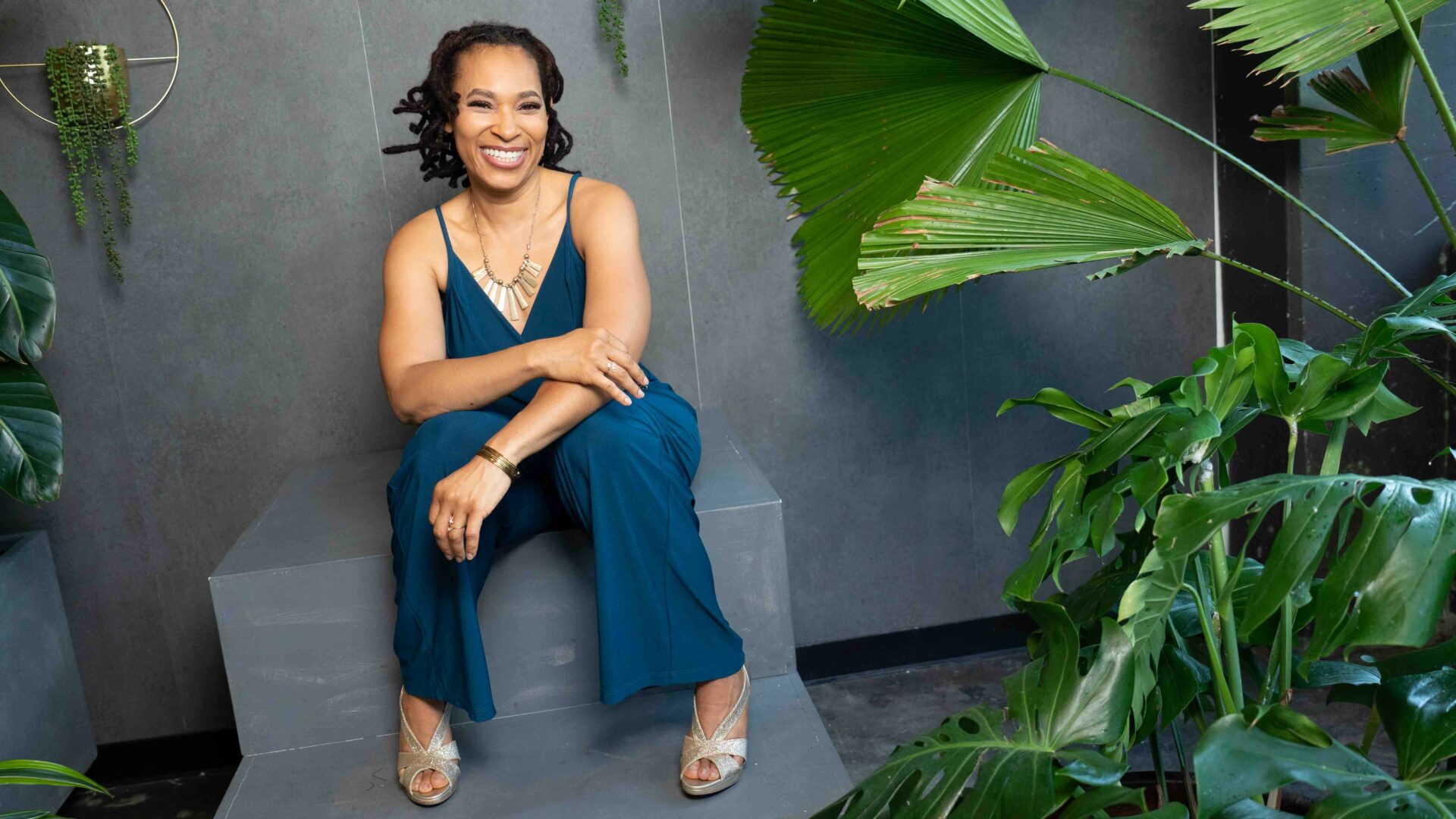We’re excited to introduce you to the always interesting and insightful Maiysha Clairborne. We hope you’ll enjoy our conversation with Maiysha below.
Maiysha, first a big thank you for taking the time to share your thoughts and insights with us today. I’m sure many of our readers will benefit from your wisdom, and one of the areas where we think your insight might be most helpful is related to imposter syndrome. Imposter syndrome is holding so many people back from reaching their true and highest potential and so we’d love to hear about your journey and how you overcame imposter syndrome.
The first thing I had to do to overcome imposter syndrome is to recognize it as an experience rather than a syndrome. The syndrome implies permanency and makes it more of something to overcome. Seeing it more as an experience de-pathologized it and led me to lean in with curiosity. I asked myself “why specifically am I having this experience?” “What am I saying to myself that feels like it’s true, but is not necessarily true?” I questioned my reality strategy around the imposter experience/belief. What I discovered was that I was taking an experience and making it mean something about me that wasn’t true. After this discovery, my imposter experience became less and less frequent, and when it did show up, I could immediately recognize that it was simply my brain doing its automatic thing that brains do. I can’t say I never have the experience anymore (after all, I”m human), but I know it’s just a passing thing, not something that is wrong with me.
Let’s take a small detour – maybe you can share a bit about yourself before we dive back into some of the other questions we had for you?
I have been a healer and entrepreneur my entire adult life. Even before medical school, I was creating income as a healer. Going into medical school, I always knew my path would be different. The ideas I had for practicing medicine with a holistic style were ahead of their time. In residency, I realized that the traditional way of practice would not work for what I wanted, and that As I came close to completing my residency, I looked for jobs that were aligned with what I wanted to do, but there were none. My mother always showed me that if the something that you want doesn’t exist, you have to create it. When I realized that I wasn’t going to find a job out of residency that would allow me to practice medicine the way I wanted, I knew I was going to have to start my own practice. That was my first entry into entrepreneurship and small business ownership. I grew that business over 10 years, starting with no outside funding and at the beginning of the 2008 recession. However, within 10 years of being in practice as a physician, I knew there were bigger plans ahead. In 2013, I realized how much I loved helping my patients get to the root of their stressors, and unconscious limiting beliefs. That led me to train in Neurolinguistic programming. I’d go on to become a master practitioner, and an NLP trainer in 2017, subsequently selling my practice to fully immerse myself in the discipline of helping others understand their brain, behavior, and communication. Little did I know, that the events of 2020 would transform my view of how I could use my expertise, it would lead me to activism, anti-oppression, and equity work. What I have loved most about being a small business owner is that I get to use my specific brand of expertise to change the world in ways that will impact generations. I’m creating a legacy of which I know I will never see the full impact.
Now, I speak, train, and facilitate conversation about psychological safety and trauma responsiveness in organizations and in healthcare. What I love most about what I do is that I get to help organizations create psychologically safe and mentally healthy cultures inside of their organizations so that their best leaders and employees feel seen, heard, respected, and valued. This work is about helping people feel mentally healthy inside of their various environments and since most people spend more than half their waking day at work, their work place has a very large impact on their mental and emotional well-being. It should be a safe place to exist.
Last summer, I launched my online trauma informed communication course is which teaches people the skills of expanded listening and communication to cultivate psychologically safe relationships at work and at home, and also to help move people through trauma activated spaces.
At the end of the day I am an agent for transformation, and while much of my work is in the healthcare space (both organizational and individual), I know that the ripples I create with each individual I reach will span beyond what I will ever see in my short sight and lifetime.
I am also a mother raising a young boy. So, to be honest much of the work I do is to create a world where he can feel safe, empowered and thrive.
Looking back, what do you think were the three qualities, skills, or areas of knowledge that were most impactful in your journey? What advice do you have for folks who are early in their journey in terms of how they can best develop or improve on these?
I believe watching and working with my mother was the first most important influence for me. She was the original entrepreneur and she modeled courageousness that helped me to be courageous as I stepped outside of the typical path of medicine.
From early on in my life, I think I was a trailblazer. I could see the connections between things others couldn’t. I stepped into integrative medicine before it was well known and popular. When I left clinical medicine, I became a physician coach (something that was, in our industry, largely unknown and un-recognized). Even now, I’m bringing Neurolinguistic communication into the world of activism, equity, and anti-oppression work in a way that could has made a huge difference in the effectiveness of organizations we teach and consult with.
That leads me to the third skill: When I learned Neurolinguistic programming (which is probably one of the most impactful skills and areas of knowledge I could have taken on), it opened up listening in a way that has helped me to bring innovation to my areas of expertise, helping me make a deeper longer lasting impact.
Looking back over the past 12 months or so, what do you think has been your biggest area of improvement or growth?
My biggest area of growth in the past month has been gaining deeper clarity on the direction I’m moving, the problem I want to solve and the ultimate impact I desire to make in this world. When I became clear that psychological safety, trauma, and communication were where my heart sings it made it easier to narrow down the rest. Me being in the medical profession and having a passion for healing patients and physicians of color who have been harmed by a system that is supposed to heal combined with my commitment to equity and inclusion has given me great clarity on how to move forward in my business.
I still love providing NLP and NLP Coaching certifications, and that will continue to be a part of my business, and I know that when I curate my focus, one will feed the other and ultimately both aspects of my business will thrive.
Contact Info:
- Website: https://www.mindremappingacademy.com
- Instagram: https://www.instagram.com/DrMaiysha
- Facebook: https://www.facebook.com/DrMaiysha
- Linkedin: https://www.linkedin.com/in/DrMaiysha
- Youtube: https://www.youtube.com/DrMaiysha
- Other: Listen to the Black Mind Garden Podcast on your favorite podcast platforms or visit https://anchor.fm/remapyourmind to subscribe directly.
Learn more about Dr. Maiysha’s speaking – https://www.drmaiysha.com
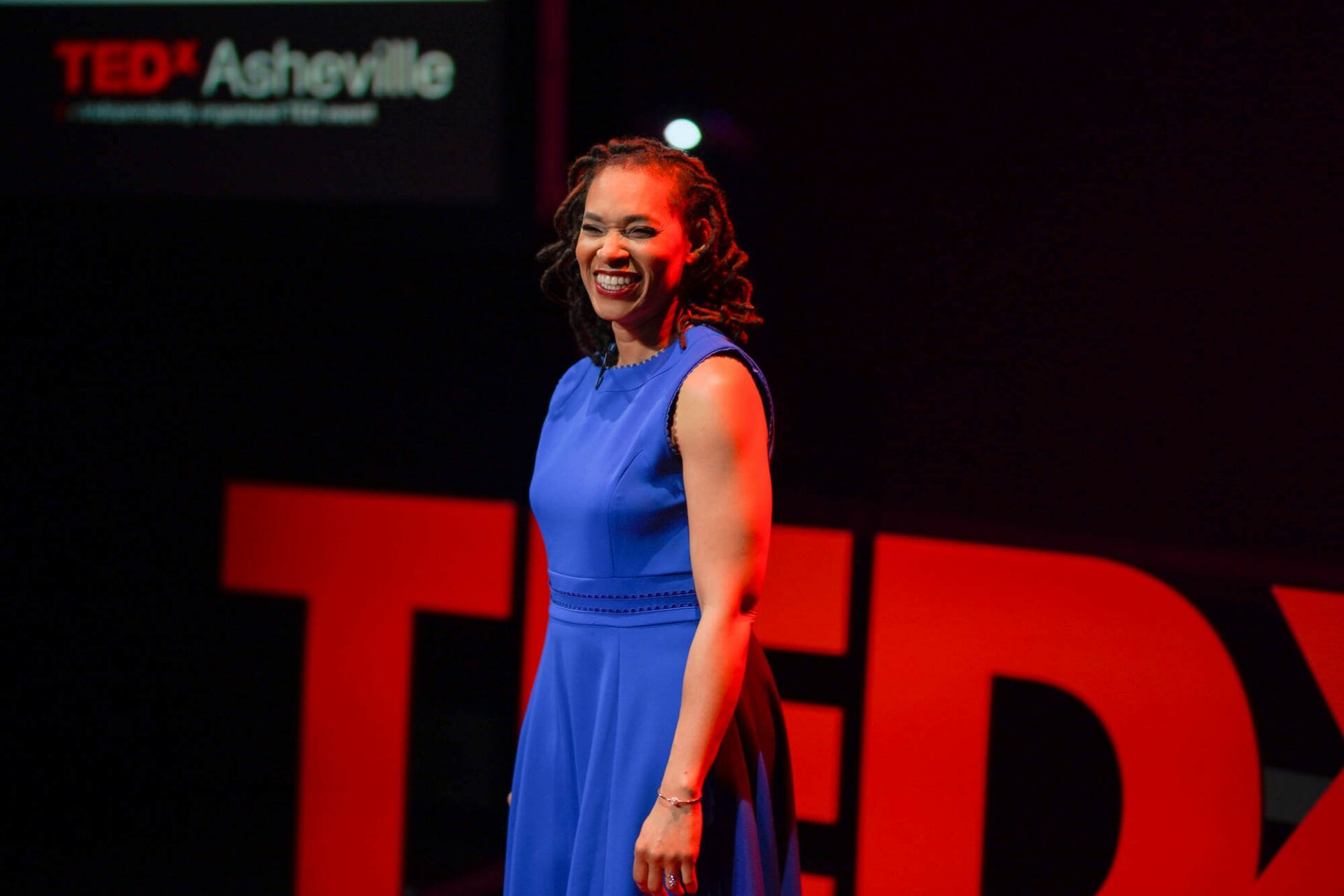
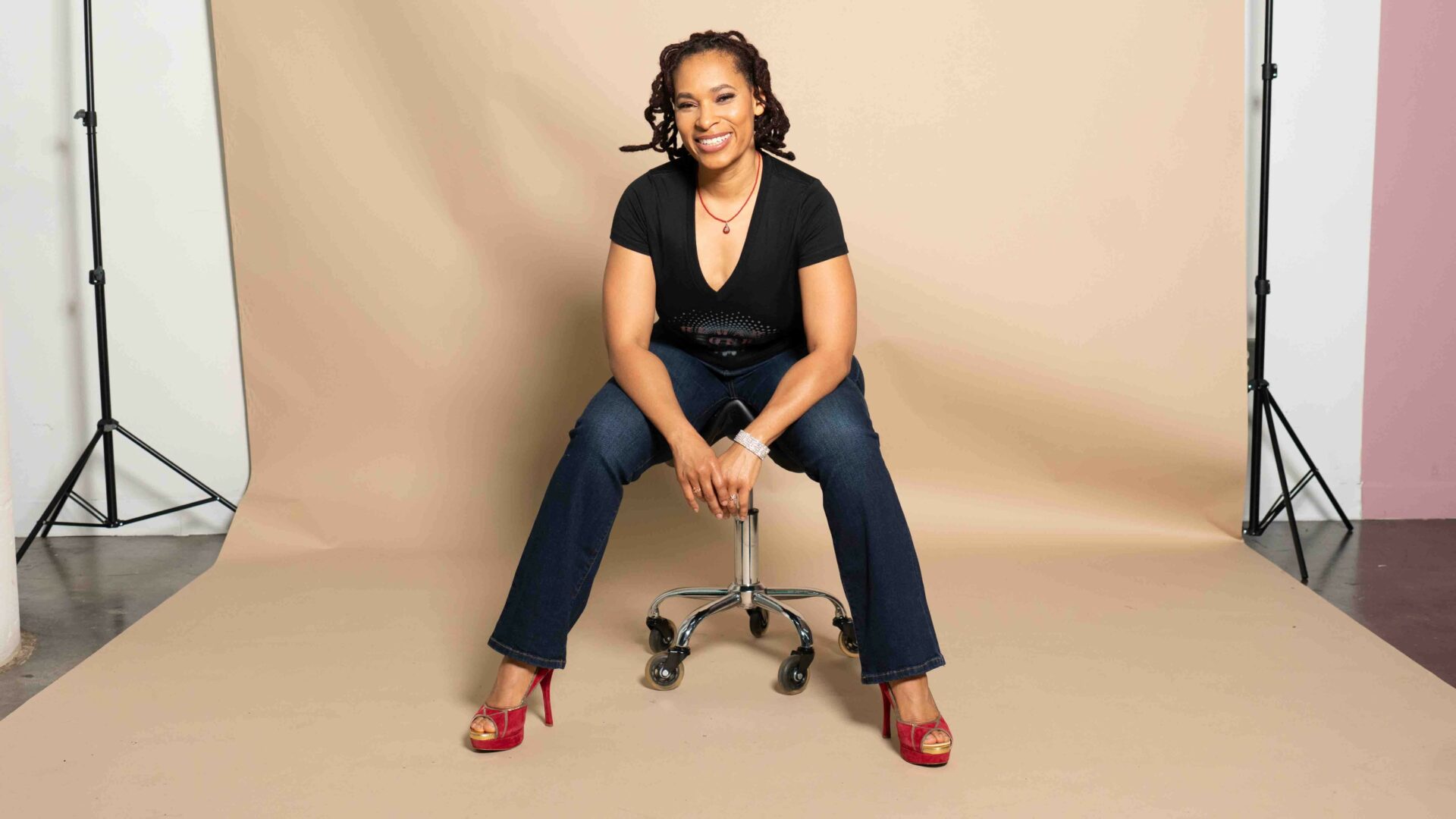
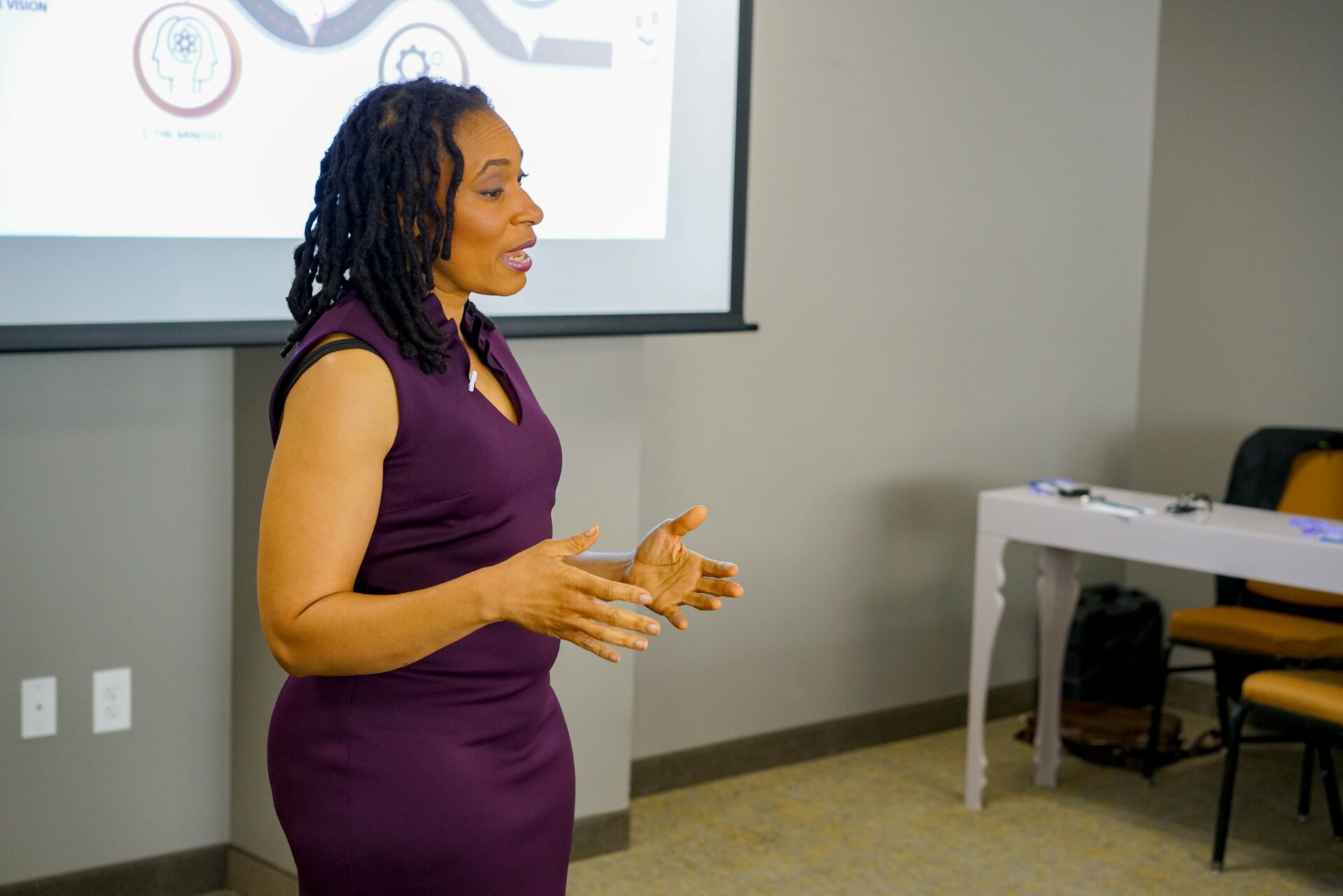
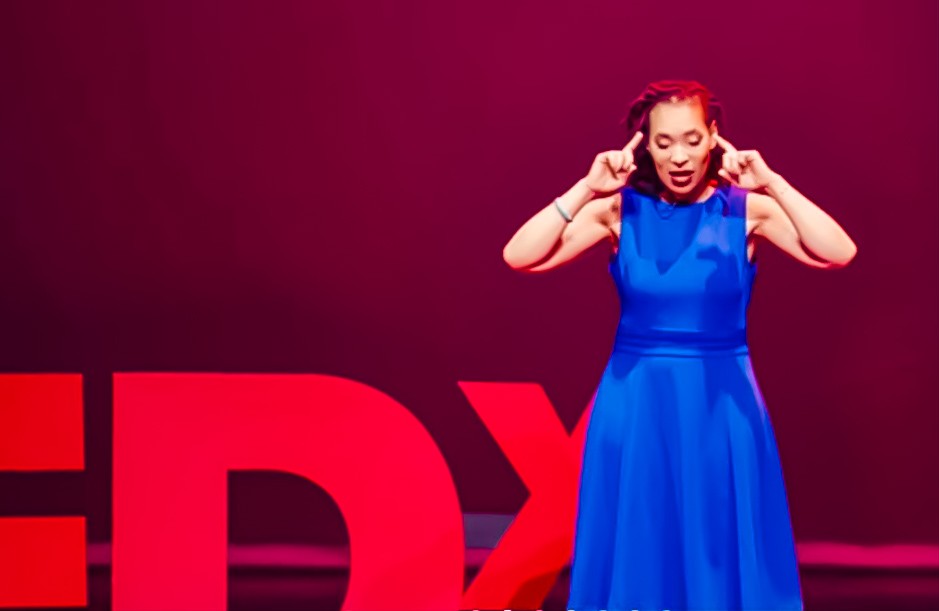
Image Credits
Image credits Nick Nelson, Brandpreneur Image credits Antwon Little, Prspctiv Pics

